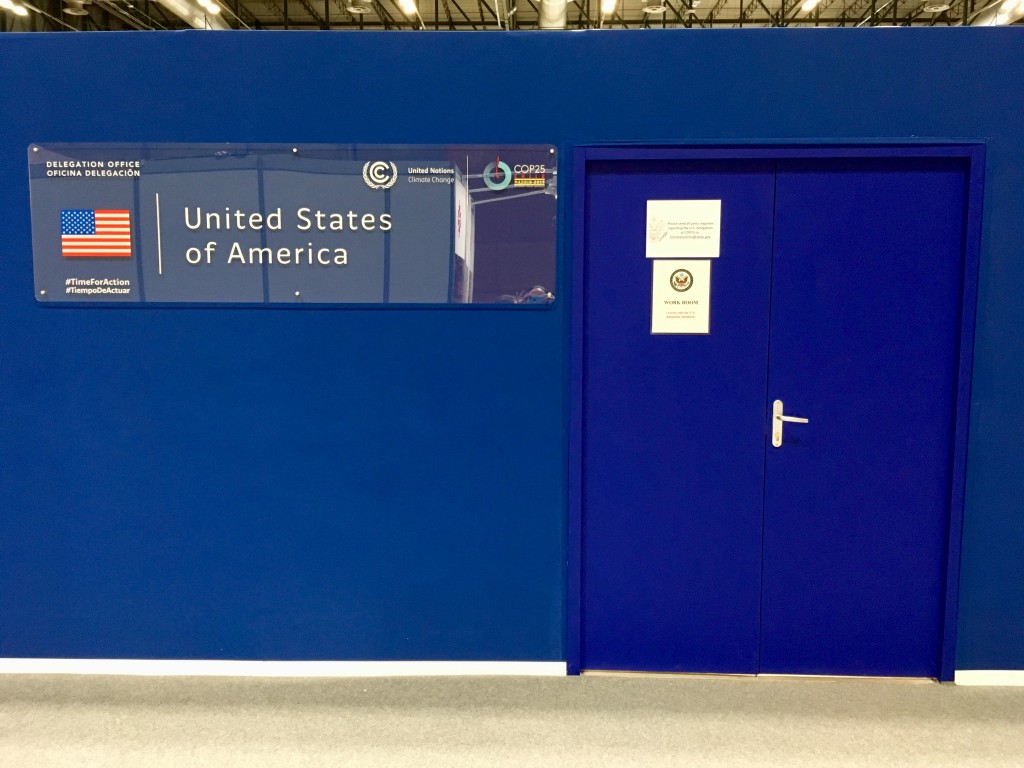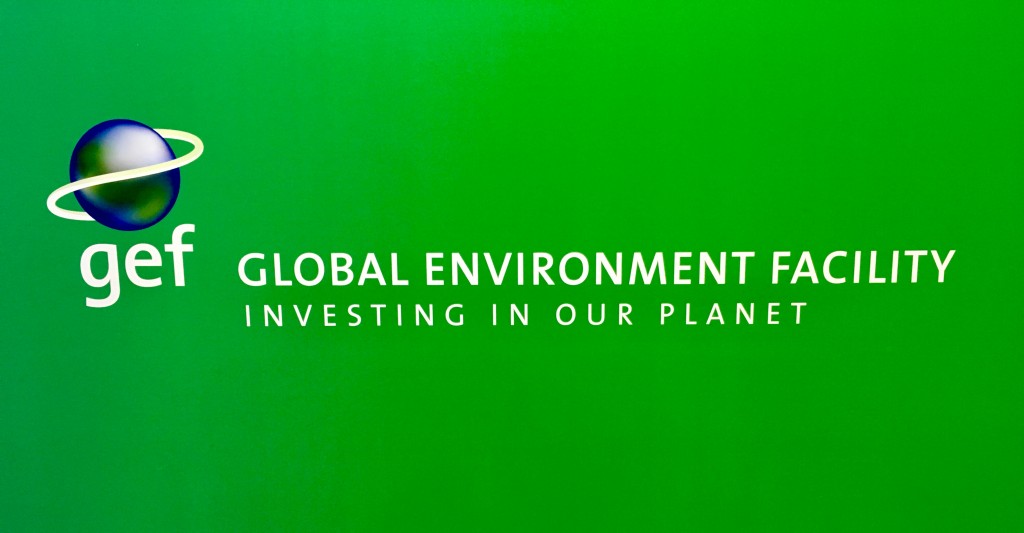On the way to the Article 6 negotiations this afternoon I ran into the wonderful Liz Nichols (former Swarthmore professor and now finance negotiator from the State Department) and decided to tag along with her for a bit instead. We stopped by the US State Department Delegation Room and chatted while her colleagues busily prepared for their meetings.
I followed Liz to an informal meeting about the details of providing GEF support for Parties to the Paris Agreement to submit the (new) required BTRs (biennial transparency reports). These are huge all-sector audits that contain a national greenhouse gas inventory and progress updates on achieving NDCs. These reports are hugely expensive for developing countries, so funding is a make-or-break issue for whether these will be ready by January 2024. It’s hard to manage emissions without measuring them, so this is a really big deal for tracking progress and reducing emissions.
I sat at a small table in the GEF pavilion with Liz and a couple of other US negotiators, GEF leads, representatives from UNDP and UNEP and three donor and LDC parties. The discussion was a technical one on how to design the funding process for the BTRs to make it accessible and effective. Even in a small group there were a lot of competing interests and perspectives even though everyone had (more or less) the same goal. It really drove home what Liz had told us before — that the details are important and hard to get right.


What a fun tag along!
Whenever I talk with Liz about the funding issues/mechanisms I am always struck by how complicated it is and with all of the details that need to be worked out. I am hopeful that all the people at the table have the same end goal in mind, and that their thoughtful work will result in a useful/powerful funding system. If I’m honest, I am a bit skeptical though and I also worry that these conversations have been in the weeds for a long time.
Jen, could you give an example of competing interests and perspectives, or is it all hush-hush? I believe that, as you say, the details are important and hard to get right, but that blanket statement leads to a kind of “trust the experts” position, and the experts are not, as far as I can see, moving us forward toward a thriving human future. How do we change the trajectory, given the complexities of the problem?
p.s. Apropos of nothing, I find the color blocks of your post very pleasing: the blue, then the green… Is there an argument there as well?
Yes — so one point of disagreement had to do with how the funding was routed, which has impacts on what agencies (like UNDP, UNEP) get to have a say in how things get done (and if they get a cut of the money). Some people would say that the countries just need to get the money quickly so they can get the reporting done, and others think that their agencies add value (and want money) and genuinely think that going around them is detrimental to the end goal of funding meaningful projects through this mechanism. I think this particular thing will be worked out quickly since everyone wants the reports on time but with probably a little more behind the scenes horse trading between the parties involved.